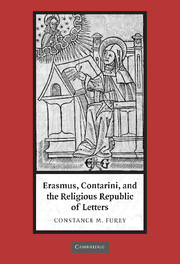4 - Necessary Relationships
Published online by Cambridge University Press: 10 December 2009
Summary
During the year when he was imprisoned in the tower of London, Thomas More wrote an eloquent letter of apology to his friend Antonio Bonvisi, regretting that he had not adequately fulfilled his obligation to be a good friend, and hoping that his debt might still be paid:
I therefore, my dear friend and of all mortal men to me most dearest, do (which now only I am able to do) earnestly pray to Almighty God, which hath provided you for me, that sith he hath given you such a debtor as shall never be able to pay you, that it may please him of his benignity, to requite this bountifulness of yours, which you every day thus plenteously pour upon me.
Peering over More's shoulder, the modern reader may be amused by the promiscuous flattery and self-abnegation required in Renaissance friendships. Among the upper classes, friends used pledges of affection and intimacy to make claims and fulfill debts, and they insisted that their relationships enacted ideals of parity, reciprocity, and persuasive communication. As recent studies of friendship in early modern Europe have emphasized, this glorifying rhetoric manifested a deep uneasiness about new forms of social and political power; Renaissance friends wanted to create an alternative to relationships based on utilitarian calculations of patronage and political power, and they wanted to create a model for a civil society. Friendship, then (the studies have concluded), essentially was a way to navigate a society roiled by power struggles.
- Type
- Chapter
- Information
- Erasmus, Contarini, and the Religious Republic of Letters , pp. 118 - 145Publisher: Cambridge University PressPrint publication year: 2005



